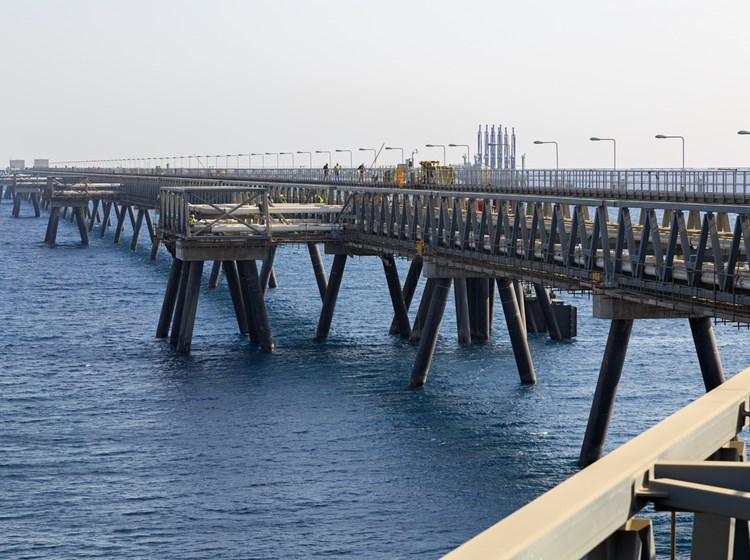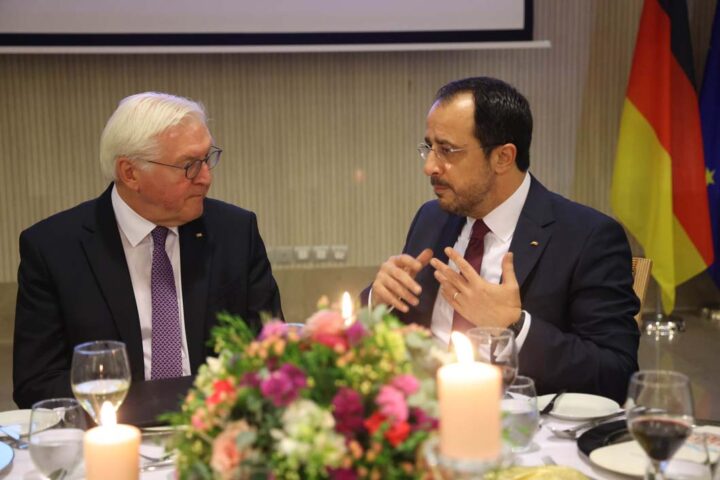Eight international bids have been received for the contract to supervise building a Liquefied Natural Gas terminal in Cyprus for importing LNG, the state Natural Gas Infrastructure Company (ETYFA) said.
In a statement on Thursday, ETYFA welcomed the high level of participation, as eight bids were received and will now be evaluated under the public contract guidelines.
Proposals were received from the following companies/consortia:
- MITAS Generators, KELBERRY Joint Venture (MKJV), MT Milan Tractor S.P.A
- ABAMBA Ltd (EPCM Consultants SA), Global Maritime Consultancy & iX Engineers
- Lloyd’s Register, Sofregaz, Rogan Associates (joint venture)
- Hill International N.V., Bureau Veritas Solutions Marine & Offshore
- RINA Consulting S.p.A.
- Technip E&C Ltd (TECL)
- DNV GL
- AMEC Foster Wheeler Iberia S.L.U
“The high level of participation emphasizes, once again, not only the significance of this project at an international level but also its viability,” said the statement.
ETYFA said the challenge was to complete the evaluation process as soon as possible and to proceed with the selection of the team of experts to oversee the construction of “one of Cyprus’ most important energy development projects”.
“The interest in the tender process for the supervision of the construction of infrastructure for introducing LNG to Cyprus as well as the great interest expressed for this important energy project… highlights both the high standard of the project as well as the participants’ confidence in the procedures,” said ETYFA President Symeon Kassianides.
He said the construction and operation of the LNG terminal is progressing steadily and within the set time frame, leading Cyprus towards a new energy era, reducing energy costs, CO2 emissions and opening up new opportunities for the country.
The LNG terminal to be completed by end 2021 or early 2022, will include a floating storage and regasification unit (FSRU), a jetty for mooring the FSRU, a jetty-borne gas pipeline and related infrastructure.
The project has secured a €101-mln grant from the EU under the Connecting Europe Facility (CEF) while the Cyprus Electricity Authority will contribute €43 mln securing a 30% stake in ETYFA.
ETIFA will cover the remaining part of the cost with funding from international lenders such as the European Investment Bank and the European Bank for Reconstruction and Development, with state guarantees.
The infrastructures operational expenditure (Opex) is estimated at €10.5 mln per annum.
On December 13, the agreement for assigning the project was signed at the Presidential Palace.
Since then, procedures have gone ahead for the selection of the owner’s engineer, securing the supply of natural gas at optimal prices, as well as securing the necessary licenses and developing the entire contractual framework for the operation of the project.
China-Greece partnership
In December, Cyprus signed a landmark deal with a Chinese-led consortium to build a €290 mln terminal for the import of LNG for electricity generation, said to be among the biggest energy projects.
ETYFA signed a contract to build its first LNG terminal with the multinational consortium led by China Petroleum Pipeline Engineering.
The consortium also includes METRON (Greece), Hudong-Zhonghua Shipbuilding (China) and Wilhelmsen Ship Management (Norway).
State Natural Gas Public Company DEFA has launched an additional tender for the LNG supply, attracting expression of interest from 25 suppliers.
Cyprus intends to import approximately 0.5 bcm of LNG through Gas Sale Purchase Agreements (GSPAs) with a duration of three to four years, maintaining the option to purchase LNG also from SPOT markets.
Turning to natural gas will help Cyprus safeguard energy supply, diversify the energy mix, and promote competition in the electricity market through the involvement of independent producers.
Cyprus had three unsuccessful attempts to import natural gas in the past due to its small size and energy needs.
The use of natural gas will reduce Cyprus’ carbon footprint by 25% to 30% in replacing oil-burning for electricity generation.
Based on conservative estimates, electricity generation cost savings will range between 15% to 25% from 2022-2025.
Greek oil and gas producer Energean has made a pitch to sell its Israeli natural gas to Cyprus via pipeline at a competitive price while Nicosia is opting for LNG.
It has offered to build a $350 mln pipeline to Cyprus — using its own money — to supply gas from its Karish North field to the island.
So far, Cyprus has said it does not need the pipeline as it plans to install a floating LNG import terminal.
It is also set to award a long-term supply contract for LNG — in effect creating a single-supply market.
Norway’s Hoegh LNG in March confirmed it has officially applied to Nicosia for a liquefied natural gas infrastructure ownership, operations, and development license in Cyprus.
Hoegh LNG said it was offering Cyprus the installation, within the first quarter of 2021, of an FSRU at Vasiliko and a pipeline to transport the gas to the EAC’s power plant and potentially other users.
“This solution can serve as interim until the state-owned LNG infrastructure is in place at Vasiliko.”
The company said its proposal “does not in any way interfere with the government’s plans”.
It said Cyprus, “will be able to save in excess of €100 mln per year from 2021 onwards, by switching power generation to burning natural gas from heavy fuel oil”.
It clarified that the proposal “requires no state aid or investment” and Hoegh LNG is “open to working closely with DEFA, for delivering this important infrastructure project for Cyprus”.
Cyprus is pushing forward to diversify its energy mix to reach new emission targets for the country’s power production.
The country plans to replace the consumption of refined oil products with cleaner solutions such as LNG.
Hoegh says the plan for LNG imports into Cyprus consists of using one of its floating storage and regasification units as a fast track solution for the required fuel switching.
The FSRU can stay on location as a bridging solution or for an extended period serving different customers on Cyprus as well as bulk breaking and delivering LNG to other customers in the Mediterranean.









